How many times has a panicked non-horse person rushed up to you saying, "Your horse is dead in the pasture!" Your heart might skip a beat at first, but then you remember something; a sleeping horse can look a lot like a dead horse to someone who doesn't know any better.
It's a common misconception that horses can only sleep while standing up. We can forgive the people who truly don't know any better, but it's always best to know as much as possible about your horse's sleeping habits. Think about it, what do you actually know about horses and sleep?
Here's a list of basic facts to test your knowledge.
1. Horses prefer to stand while they're snoozing so they can protect themselves from predators.
As a prey animal, a horse's survival depends on their ability to avoid and outrun predators. When they're asleep, they're obviously at a disadvantage. Horses sleep standing up because it's the safest way to catch some z's. If they were to be attacked, they don't have time to get off their backs and onto their feet. They remain standing so they don't waste any time in running away.
2. Horses can snooze standing up thanks to their "stay apparatus."
The stay apparatus is a horse's unique anatomical mechanism that allows them to stay vertical even when they're not fully conscious. It works by locking the horse's kneecap with ligaments and tendons. It sounds scary, but it doesn't hurt. It's completely natural, and all horses are born knowing how to do it.
You can tell when a horse is sleeping while standing by taking a closer look at its back legs. They only lock one of their back legs into place, and the other is usually raised slightly so just the tip of their hoof is touching the ground. This can make a sleeping horse look like it's cocking its hip.
3. Horses need to lie down to get REM sleep.
While horses can take quick snoozes while standing, they can't get their much-needed REM sleep without relaxing all their muscles. Just like in humans, REM sleep is essential to keep horses well rested. But unlike us, horses only need about 2-3 hours of REM cycle a day.
Most horses get this kind of sleep in short bursts. They'll lie down for 20 minutes, get up for a while, and lie down again later.
4. Horses don't sleep all night like we do.
Horses are neither nocturnal (night active) or diurnal (day active). Instead of falling into a deep sleep every night, horses typically spend their nights alternating between rest and activity. They might take a short snooze standing up, graze for a while, and then stretch out on their side to get a few minutes of deep sleep. They'll repeat that routine even when the sun comes up if they're left to their own devices.
Your horse's sleeping habits will mostly depend on their routine. If you work them for most of the day, they'll be more likely to sleep at night. But if they have the days to themselves, they'll adapt to the sleep routine they feel most comfortable with.
5. Horses prefer to take turns sleeping.
This is one of many reasons why horses do best in groups. They're herd animals, and they work together to keep their herd safe.
In the wild, you'll never catch an entire family band sleeping at the same time. That would leave everyone vulnerable to predators. Instead, horses rest in shifts. Whoever isn't sleeping stands watch, and they switch on and off to ensure everyone is well rested.
6. If your horse is cranky, it could be because they aren't getting enough sleep.
Horses don't need as much sleep as humans, but they still feel the effects of exhaustion. You have coffee to get you through the day, but horses don't have that extra boost. It's usually easy to tell whether or not a horse has been getting all the sleep they need. If they go too long without REM sleep, they'll start to show it in their attitude.
7. Horses lose sleep when they're stressed or don't feel safe.
Your horse automatically knows that falling asleep in the wrong spot could be dangerous. Some spooky horses take this threat more seriously than others, but it's important for all horses to have a safe place to get some rest.
If they're outside 24/7, a run-in shed will do the trick. If you bring your horse into the barn at night, make sure their stall is large enough for them to comfortably lie down.
Horses that recently moved to a new barn might go a few days or even weeks without REM sleep. They might also stop sleeping if something in their environment is putting them on edge. It could be a new member to their herd or even the smell of a coyote or mountain lion somewhere nearby. Basically, if your horse is stressed, she won't sleep.
Horse Courses by Elaine Heney
- Listening to the Horse - The Documentary by Elaine Heney & Grey Pony Films
- Shoulder In & Out Training for better balance, bend & topline development with your horse
- Over 110+ Polework Exercises & Challenges to Download
- Dancing at Liberty & Creating Connection with Your Horse (11 lessons) - Grey Pony Films
How many of these sleep facts did you already know? Share with your friends to spread the knowledge!

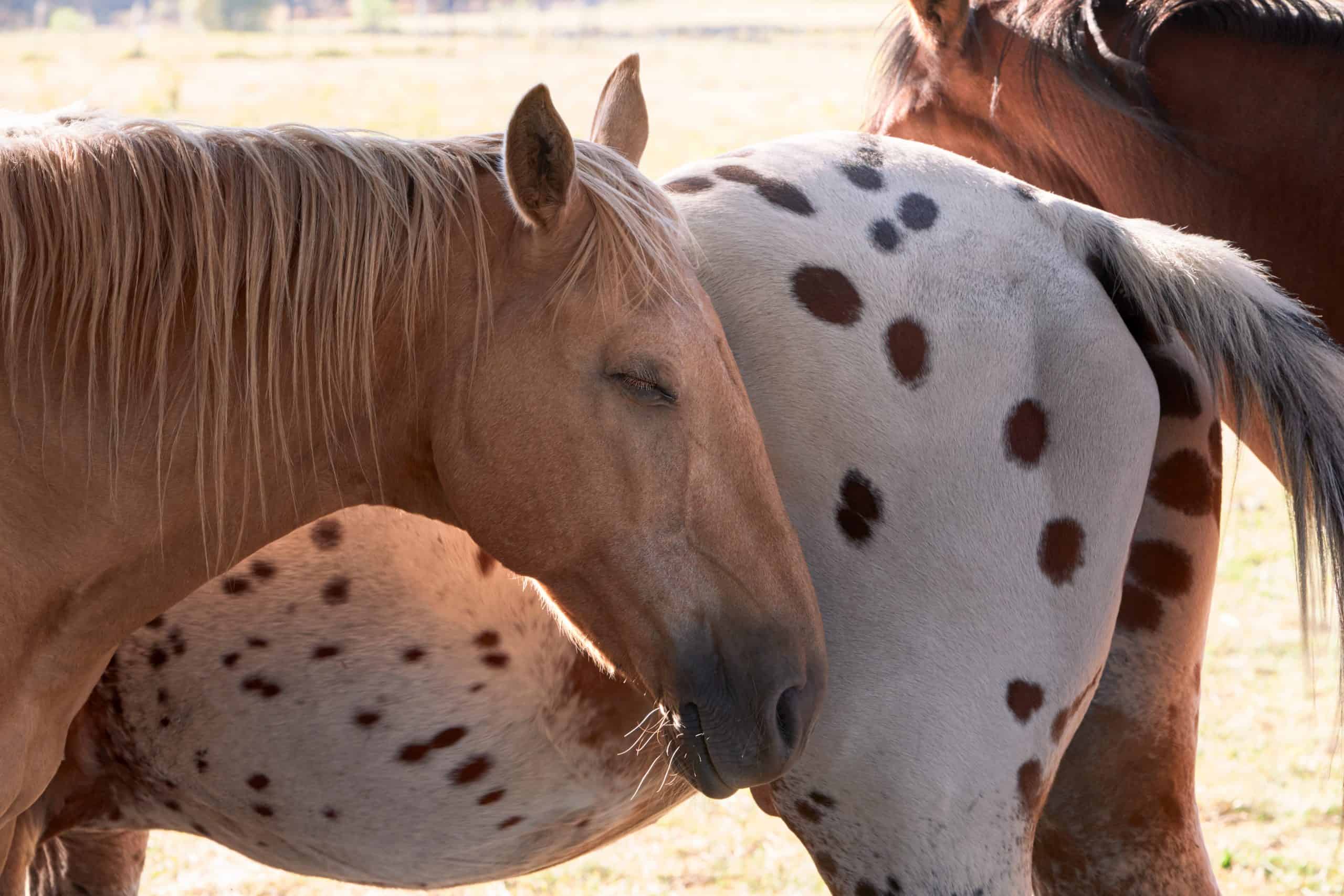
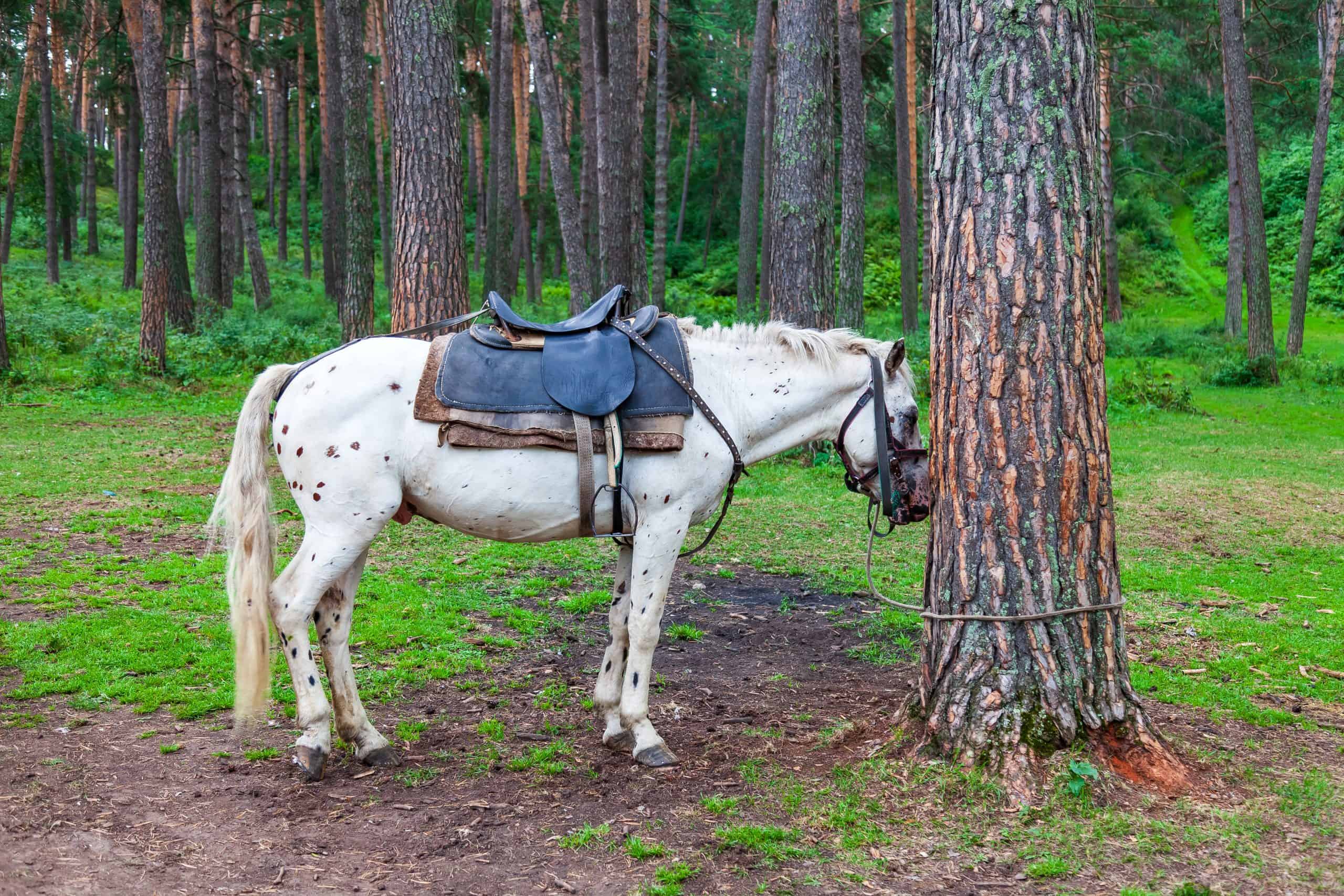
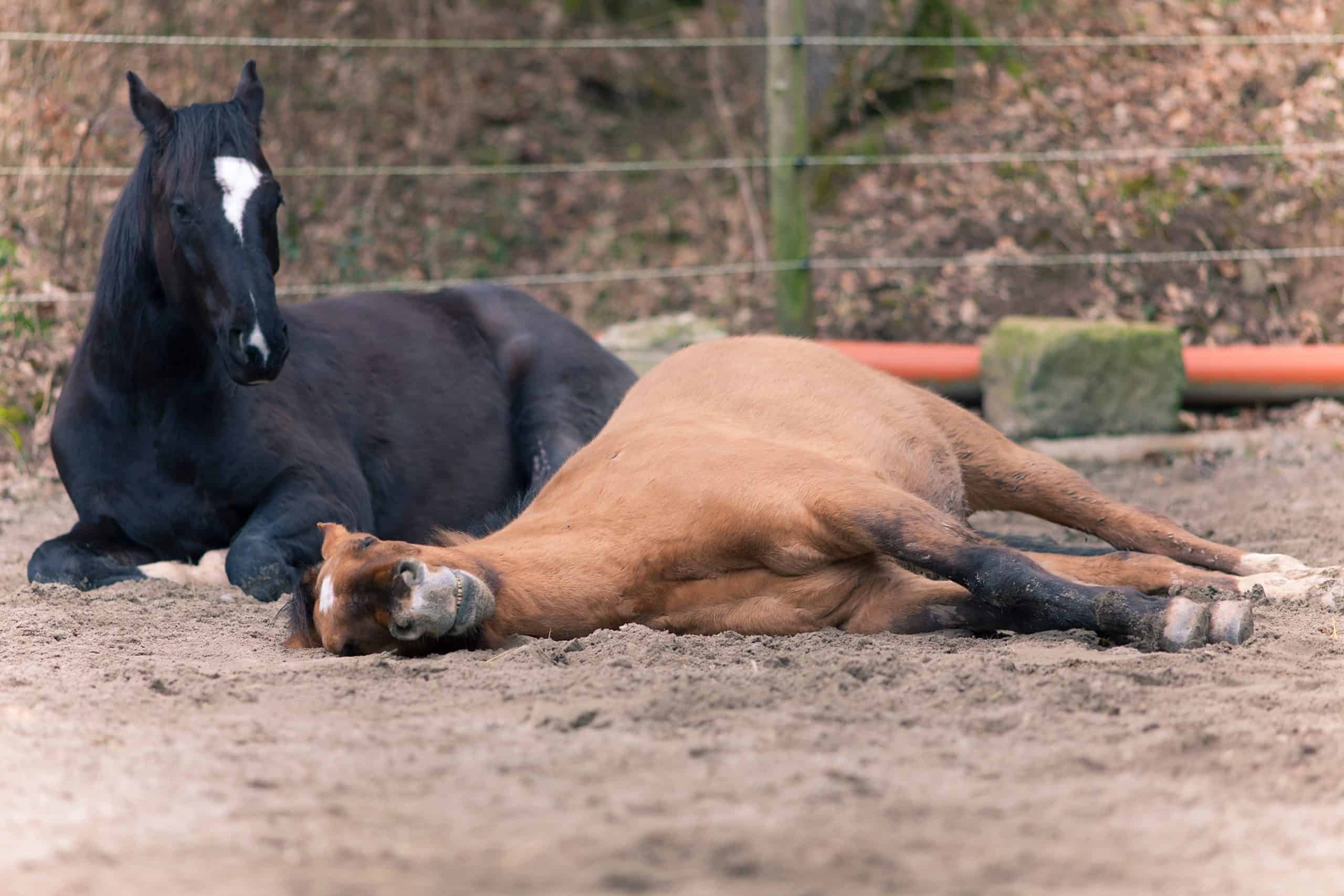
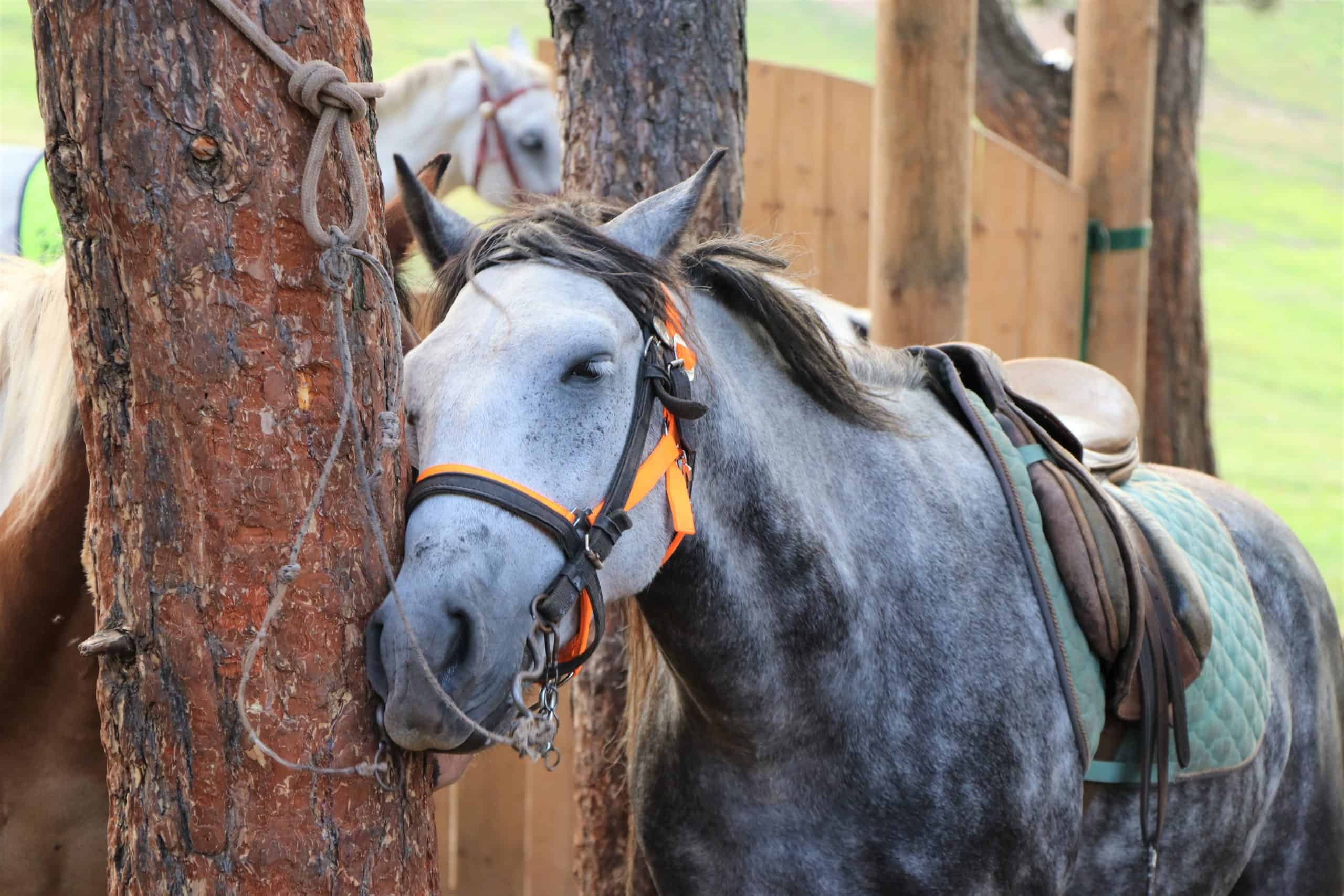
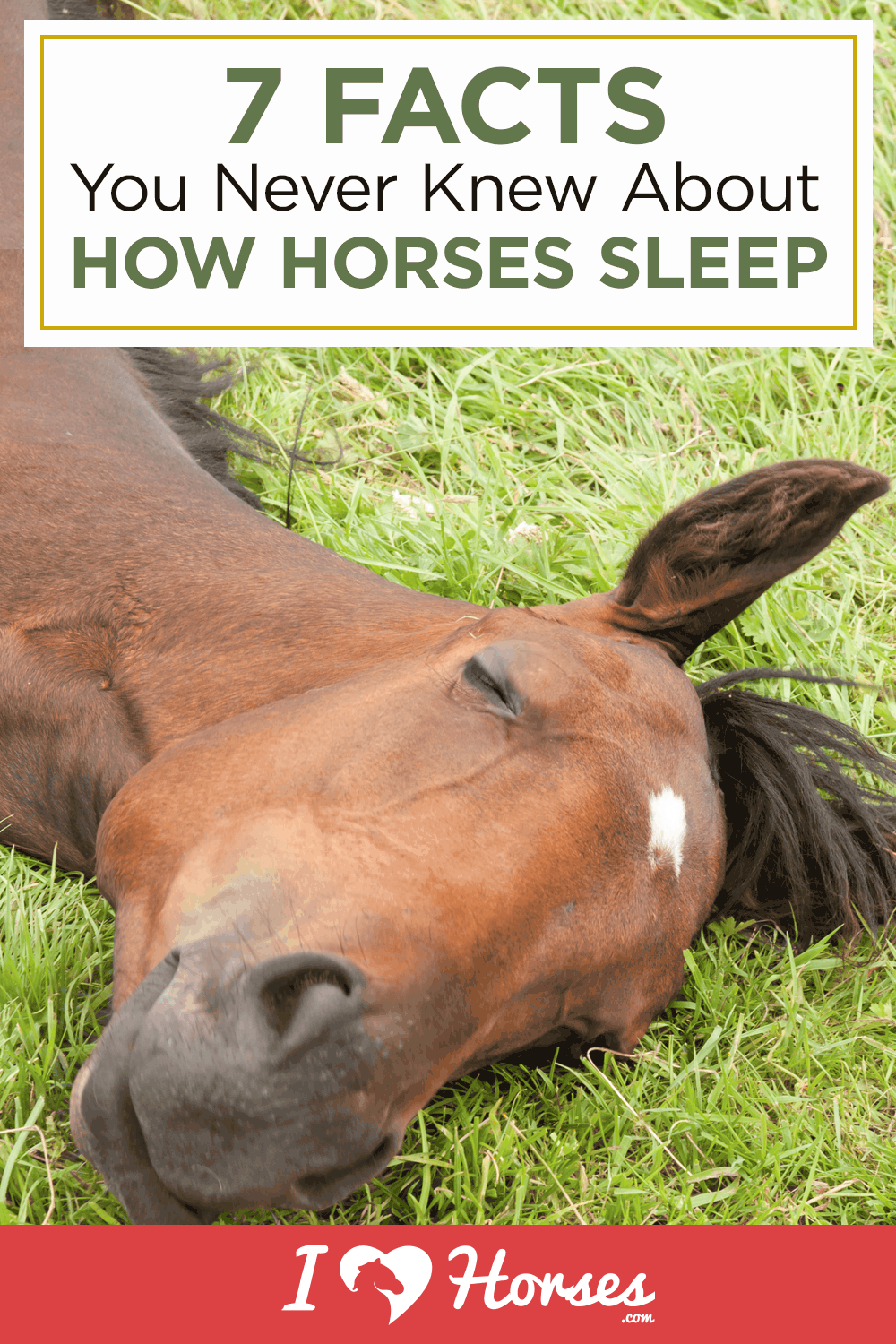

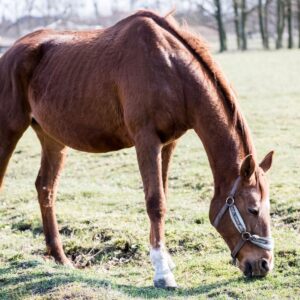
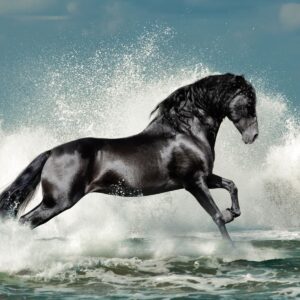
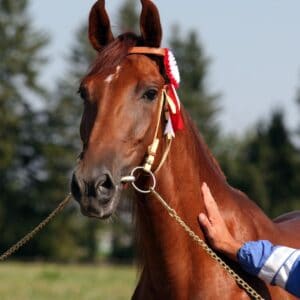
Linda Copas-Smith
Very